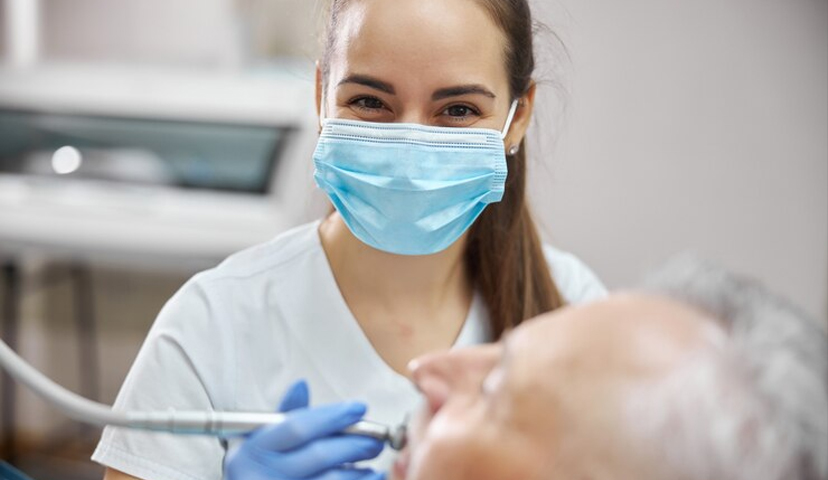Why Oral Hygiene Is More Important to Your Overall Health Than You Think?

Oral hygiene is often brushed off as just a part of daily routine, but it impacts far more than just your teeth. You might be surprised to learn that the state of your mouth can influence your overall health in significant ways.
Keeping your mouth clean doesn’t only prevent cavities and bad breath; it plays a crucial role in your body’s broader health.
Think of your mouth as a gateway to your body. Bacteria and inflammation from poor oral hygiene can lead to serious health conditions, from heart disease to diabetes. In this blog, we’ll dive into why maintaining good oral hygiene is not just about a bright smile—it’s essential for your overall well-being.
Ready to discover how your dental care routine affects your entire health? Let’s explore the surprising ways your oral hygiene matters more than you might think.
The Connection Between Oral Health and Systemic Diseases
Heart Disease
Did you know that poor oral hygiene can impact your heart health? Research suggests that gum disease increases the risk of heart disease. Bacteria from inflamed gums can enter the bloodstream and contribute to the buildup of plaque in arteries. This condition, known as atherosclerosis, can lead to heart attacks and strokes. Regular brushing and flossing are essential to reduce this risk and protect your heart. Always remember, the importance of oral hygiene extends beyond your mouth, impacting your heart health significantly.
Diabetes
Oral health and diabetes share a two-way street. Gum disease can make it harder to control blood sugar levels, worsening diabetes. Conversely, high blood sugar levels can increase the risk of developing gum disease. Maintaining good oral hygiene helps manage diabetes by reducing gum inflammation and preventing infections. If you have diabetes, regular visits to a dentist in Rocklin can help manage both your dental and systemic health effectively.
Respiratory Issues
Poor oral hygiene can also affect your lungs. Bacteria from the mouth can be inhaled into the lungs, leading to respiratory infections such as pneumonia. By maintaining a clean mouth, you minimize this risk. Ensuring proper oral hygiene is crucial for respiratory health, especially if you’re prone to respiratory issues.
The Role of Oral Hygiene in Preventing Infections
Oral Bacteria and Systemic Infection
The mouth is home to numerous bacteria, some of which can cause infections if not properly managed. When oral hygiene is neglected, harmful bacteria can enter the bloodstream and spread to other parts of the body. This can lead to serious infections and complications. By maintaining good oral hygiene, you can significantly reduce the risk of these infections. Regular brushing, flossing, and rinsing help keep these bacteria in check, ensuring your mouth stays healthy and free from harmful pathogens.
Impact on Immune System
A healthy mouth supports a healthy immune system. Chronic gum disease can put stress on your immune system, making it less effective at fighting off infections. Good oral hygiene helps reduce this stress and supports overall immune function. Incorporate regular dental check-ups into your routine to keep your mouth—and your immune system—strong. If you need advice on maintaining your oral health, don’t hesitate to find a dentist near me to guide you.
Oral Hygiene and Mental Health
Link to Depression and Anxiety
Oral health can also influence your mental well-being. Chronic pain from dental issues, such as gum disease or tooth decay, can contribute to feelings of depression and anxiety. The discomfort and embarrassment associated with poor oral health can affect your emotional state. Maintaining good oral hygiene not only prevents these issues but also boosts your self-esteem and mental health. A bright, healthy smile can improve your confidence and overall mood.
Self-Esteem and Quality of Life
Good oral hygiene positively impacts your self-esteem and quality of life. A clean mouth and attractive smile can enhance your confidence in social situations and reduce stress. Investing time in your oral care routine pays off not just in health, but also in how you feel about yourself. Regular care ensures that you’re always ready to smile confidently and enjoy life to the fullest.
Effective Oral Hygiene Practices
Daily Routine
To maintain optimal oral health, follow a consistent daily routine. Brush your teeth twice a day with fluoride toothpaste and use a soft-bristled toothbrush. Floss daily to remove food particles and plaque from between your teeth. Incorporate an antibacterial mouthwash to reduce bacteria and freshen your breath. Adopting these practices ensures your mouth stays clean and healthy.
Diet and Oral Health
Your diet plays a significant role in oral health. Consuming sugary and acidic foods can lead to tooth decay and enamel erosion. Opt for a balanced diet rich in fruits, vegetables, and whole grains to support your oral health. Foods high in calcium, such as dairy products, strengthen your teeth and bones. Drinking plenty of water also helps wash away food particles and bacteria, maintaining a clean mouth.
Regular Dental Check-Ups
Visiting a dentist in Rocklin regularly is crucial for maintaining oral health. Routine check-ups and professional cleanings help prevent and detect issues early. Your dentist can provide personalized advice on oral hygiene and address any concerns you may have. Regular appointments ensure that your mouth remains healthy and free from problems that could impact
The Impact of Neglecting Oral Hygiene
Short-Term Consequences
Neglecting oral hygiene leads to immediate issues such as bad breath, gum inflammation, and tooth decay. These problems can cause discomfort and affect your daily life. Bad breath, in particular, can be socially embarrassing and impact your confidence. Regular brushing and flossing help prevent these short-term consequences and maintain a fresh, healthy mouth.
Long-Term Health Risks
Over time, poor oral hygiene can lead to more severe conditions like periodontitis, which is linked to systemic health issues such as heart disease and diabetes. Chronic gum disease can result in tooth loss and severe infection. By maintaining good oral hygiene, you avoid these long-term risks and protect your overall health. Investing in your oral care today prevents more serious problems down the road.
Taking care of your oral hygiene is crucial for maintaining overall health. Good oral practices not only prevent dental issues but also protect against systemic diseases, boost mental well-being, and enhance your quality of life. By prioritizing daily brushing, flossing, and regular dental visits, you safeguard more than just your smile. Embrace a holistic approach to oral care and experience the far-reaching benefits of a healthy mouth. Your well-being depends on it!




